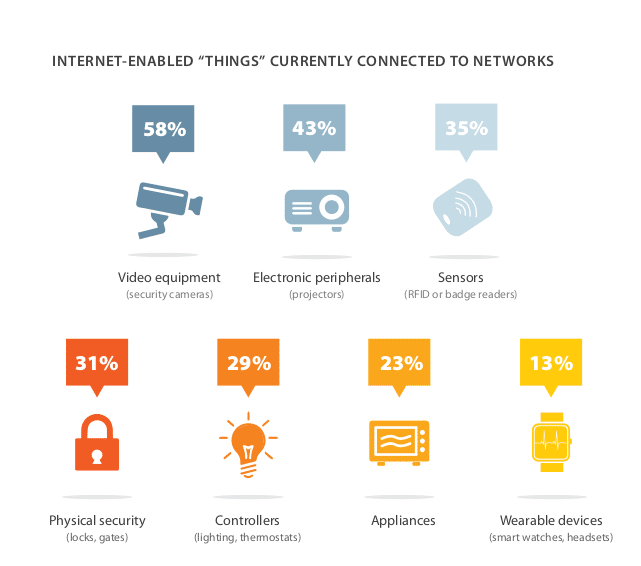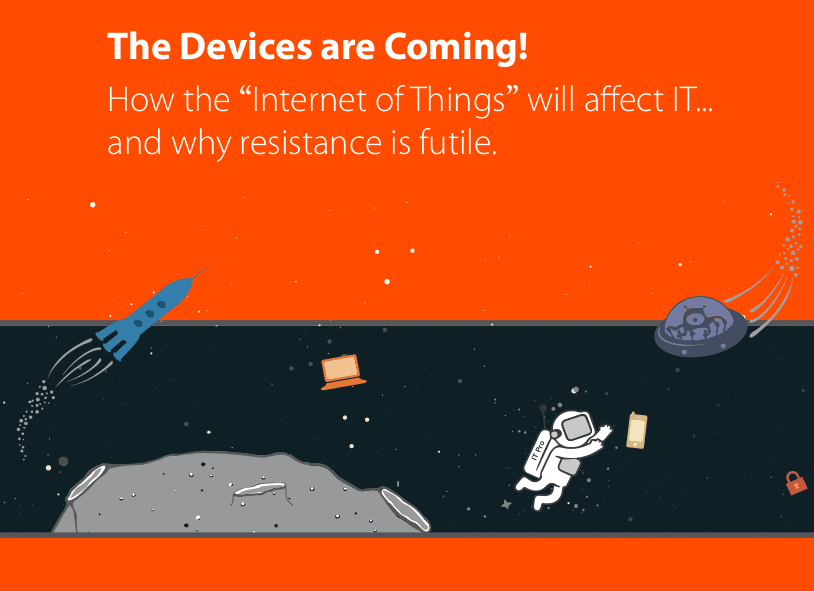
In-brief: Could security, privacy and availability concerns created by Internet of Things devices end up encouraging separate “thing-only” networks? A survey of IT pros suggests that it could.
Enterprise IT pros believe that Internet of Things devices should be cordoned on a separate network to solve the myriad of problems they will bring to traditional enterprise environments: from bandwidth demands to security and privacy risks.
More than 40% of IT professionals said that they would likely deploy connected devices on a separate network rather than connecting them to their existing corporate network. That, according to a survey of 440 IT professionals by the professional networking site Spiceworks that found evidence that of an Internet of Things wave that is already starting to slosh over into the enterprise.
The survey underscored the degree to which predictions about the advent of the Internet of Things in the enterprise are already being overtaken by “facts on the ground” (to use military parlance.) Specifically: Spiceworks survey respondents reported that network connected “things” like video surveillance equipment (58%), sensors (35%) and appliances (23%) are already deployed on their networks.

The new devices bring with them a number of practical and theoretic concerns for IT pros, the survey revealed. In the past, respondents to this survey identified bandwidth limitations and data storage as two likely pain points. But security concerns have overtaken those and is now perceived as the top barrier among respondents (65%) followed by equipment issues.
Eighty-four percent of those surveyed by Spiceworks said they worried that IoT devices would create more entry points into the network, while 70 percent expressed concerns about device makers “not implementing sufficient security measures,” Spiceworks said. Additionally, 68 percent of IT professionals said default passwords and 66 percent said the lack of IoT standards was concerning.
Asked how they would handle connectivity issues for new, Internet-enabled “things,” a plurality of respondents -43% – said they anticipated assigning them to a “separate network,” while just 23% anticipated putting them on the corporate network. 26% said they didn’t yet know how their company would handle IoT devices, while 8 percent said their company would likely bar them from accessing the network.
Confusion and uncertainty were a them. Seventy one percent of those surveyed expected IoT will impact the workplace as well as consumers, but 59% admitted they were not preparing for IoT in the workplace. Why? Thirty eight percent said they lack the time and staffing resources, and 37 percent said they lack budget to do so.
Among organizations that are preparing to support IoT, 68 percent are educating end users about risks, 47 percent are investing in security solutions, and 43 percent are investing in infrastructure. While only 12 percent of organizations are investing in new management tools for IoT devices today, nearly 50 percent plan to in the next 12 months – a possible boon for IoT focused security firms.
Read the full report from Spiceworks here.







